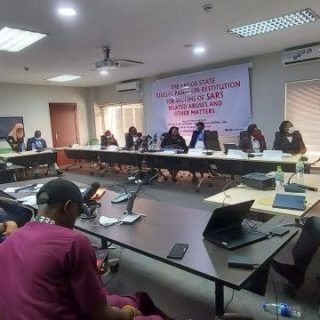Nigerian traders in Ghana have being complaining of unfair treatment and the forceful closure of their shops in the country.
The video above, recorded by a Nigerian trader in Ghana is a good place to begin. For the past few days, Nigerian traders have been appealing to the Nigerian government, claiming that their shops are being locked up by Ghanaian authorities, and that the latter are hell bent on forcefully closing up their business, despite evidence of company registration, tax payment and legal business dealings.
$1 Million Foreign Equity and 31,500 Cedis Registration Fee
But that appears not to be all of the story. Chukwueka Nnaji, President of the Nigerian Traders Union in Ghana had said shops belonging to Nigerians were locked by an Inter-Ministerial Task Force which went round on August 10, requesting their registration of business taxes, resident permit, standard control and the GIPC (Ghana Investment Promotion Council) Registration.
Nnaji explained that Nigerian traders could not afford the requirements of the registration which they were given two weeks to pay. The GIPC (Ghana Investment Promotion Council) Law allows for general trading of people who are not members of GUTA ( Ghana Union of Traders Association), but with a requirement of $1 million cash or foreign equity and registration fee of 31,500 Cedis.
Nnaji further added the law requires Nigerian trader’s to employ a minimum of 25 skilled Ghanaian workers and they must not trade in commodities that Nigerian traders have applied in.
Boakye Boateng
But Boakye Boateng, Head of Communications in Ghana’s Trade Ministry has defended the regularisation exercise, stating that it would be unfair of Nigerian traders to complain of insensitivity by the Ghanaian government.
He added that Nigerian traders had been served notice for over a year, and we’re pardoned in December following the intervention of President Nana Akufo-Addo. He added that the security officials in the ‘regularisation exercise’ only went to inspect shops, and that they were given 14 days to ensure that all their necessary documentations were complete.
Future of African Trade
It is clear there are still a lot of challenges with Intra-African trade, especially due to Xenophobia and related reasons. African governments must work together to facilitate trade and migration amongst different countries. We’ll keep hearing stories of this nature until that is fixed.




